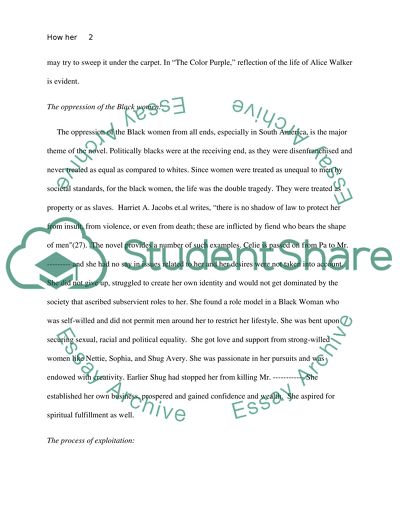Cite this document
(“Alice Walkers The Color Purple Research Paper Example | Topics and Well Written Essays - 1500 words”, n.d.)
Retrieved de https://studentshare.org/literature/1464333-alice-walkers-the-color-purple
Retrieved de https://studentshare.org/literature/1464333-alice-walkers-the-color-purple
(Alice Walkers The Color Purple Research Paper Example | Topics and Well Written Essays - 1500 Words)
https://studentshare.org/literature/1464333-alice-walkers-the-color-purple.
https://studentshare.org/literature/1464333-alice-walkers-the-color-purple.
“Alice Walkers The Color Purple Research Paper Example | Topics and Well Written Essays - 1500 Words”, n.d. https://studentshare.org/literature/1464333-alice-walkers-the-color-purple.


